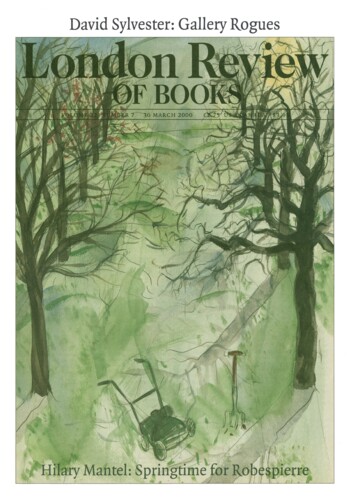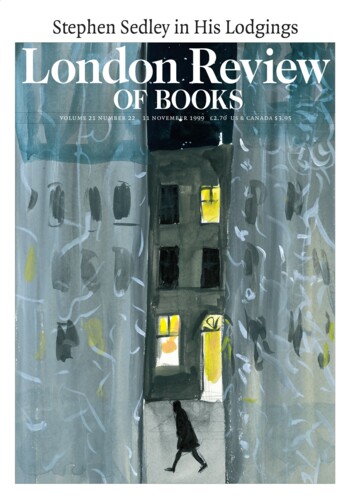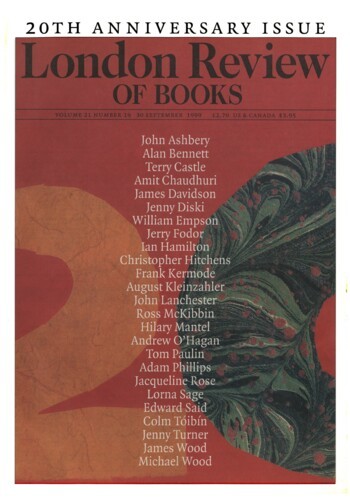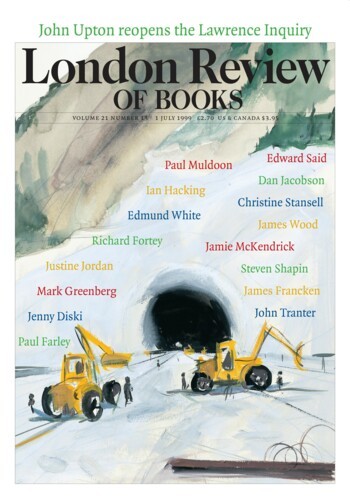Buckets of Empathy
James Wood, 30 March 2000
If innocence were a family business, a terraced saga like Buddenbrooks, our age would be the sickly generation that abandons the firm and takes up the piano. We would seem to have nothing left in the innocence bank; we are rich on suspicion. In literature, contemporary examples abound. Martin Amis, for instance, offers his own brief allegory of the writer’s modern suspicion in The Information. Richard Tull, a novelist, hears birds singing in his garden, and thinks, mournfully: ‘say birds were just parrots and learned their songs from what they heard: those trills and twitters were imitations of mountain rivulets, of dew simpering downwards through trees. Now the parrot had left its jungle and stood on a hook in a pub shouting “Bullshit!” ’‘




